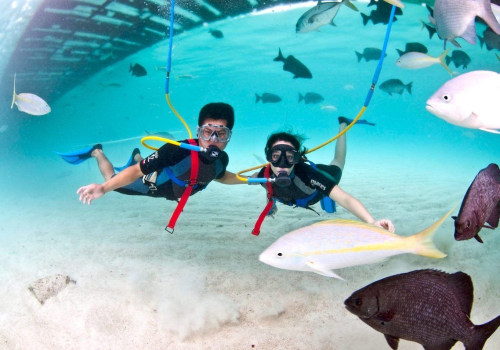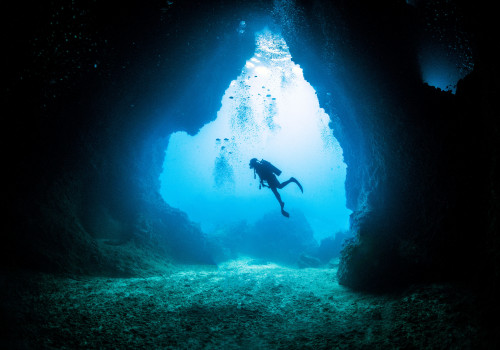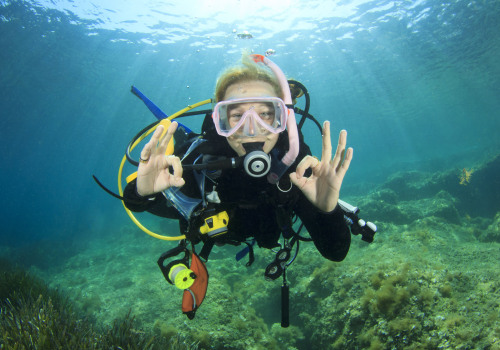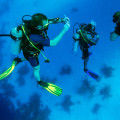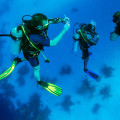Injuries can occur in any form, whether due to an accident or an inadequate safety protocol, but diving is no more dangerous than driving your car to work every day. As long as you follow the safety guidelines and remember your training, scuba diving is perfectly safe. Like any activity in the natural environment, there are risks inherent to diving that can never be completely eliminated. However, with proper training and following good diving practices, the likelihood of a fatal accident is low.
Is scuba diving dangerous? As with any adventure sport, it comes with some risks. Humans aren't made to breathe underwater, which means a diver is completely dependent on the right equipment, skills, and emergency training to ensure a safe surface for every dive. This truth, while it may sound scary, shouldn't discourage would-be divers. However, it should encourage divers to approach the sport with due respect. Diving is not dangerous as long as the diver seeks complete training, follows safe diving guidelines, uses the right equipment, and dives within their level of experience.
Not to scare you, but these risks include decompression sickness (DCS), air arterial embolism, and, of course, drowning. There are also effects of diving, such as nitrogen narcosis, that may contribute to the cause of these problems. However, careful training and preparation make these events quite rare. Your local dive center can offer a variety of training options, combining classroom and home computer training with pool sessions and local open water dives. These programs allow enthusiastic children to try diving under strict supervision and at depths not exceeding 6 feet (2 m).
You'll learn to check this meter regularly, so it's unlikely that you'll run out of air while diving. It is not surprising that the “extreme sport” of diving causes curiosity and caution on the part of beginners and the uninitiated. Just as passing a driving test for a car doesn't give you the right to exceed the speed limit, drive big trucks, or ignore bad weather conditions, passing the entry-level diving course doesn't entitle you to dive in deep water with strong currents and poor visibility. Of course, as with all worthwhile activities, you can choose to expand your list of essential diving items with items such as a dive computer, an underwater camera, and other accessories. Review the diving medical questionnaire regularly and take it seriously, even after you become a certified diver. While the mainstream media sometimes bombard us with the worst stories, it's worth remembering that for every accident that makes the headlines millions of people get into their cars (or go scuba diving) every day without incident. However many dive operators also require proof that the person has been diving for the past six months or a year.
Not performing these checks is one of the most common causes of diving accidents but during training you your partner and your instructor will check your equipment every time you are about to enter the water minimizing the risk of problems related to the equipment. Thousands of people around the world enjoy scuba diving every day and it is considered a low-risk activity compared to many other sports and outdoor activities.
